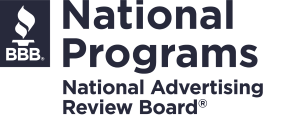
New York, NY – Nov. 27, 2023 – A panel of the National Advertising Review Board (NARB), the appellate advertising body of BBB National Programs, recommended that The Coca-Cola Company:
- Modify the claim “50% more electrolytes vs. the leading sports drink” to state “50% more electrolytes vs. Gatorade Thirst Quencher”; and
- Modify its video advertising to avoid conveying the implied message that the 50% increase in electrolytes in Powerade provides increased performance benefits and/or superior athletic performance relative to the Gatorade Thirst Quencher product.
In the underlying decision, NAD concluded that Coca-Cola’s “50% more electrolytes” claims overstated the significance of the nutrient difference and reasonably conveyed the implied messages that Powerade provides better performance and hydration than Gatorade. The NARB panel reached a different conclusion in regard to the packaging and social media claims.
The advertising at issue had been challenged by Stokely-Van Camp, manufacturer of Gatorade. Following NAD’s decision (Case No. 7198), Coca-Cola appealed NAD’s decision in its entirety. Until recently, both Powerade and Gatorade Thirst Quencher had the same electrolyte content. Earlier this year, Coca-Cola introduced a reformulated product that both parties agree contains 50% more electrolytes (sodium and potassium) than Gatorade Thirst Quencher.
Label Claim
The NARB panel concluded that in the context of the “50% more electrolytes vs. the leading sports drink” claim made on the Powerade label, the claim of 50% more electrolytes than a referenced product does not on its own imply superior performance benefits as compared to the referenced drink. The claim merely provides truthful information regarding the comparative amount of electrolytes in each sports drink.
However, because it was unclear which specific Gatorade product is referenced, the NARB panel recommended that Coca-Cola change its label to “50% more electrolytes vs. Gatorade Thirst Quencher” to clarify its valid comparative quantitative electrolyte claim.
Social Media Claims
The NARB panel found that the challenged social media posts simply provide consumers with quantitative information regarding the increase in electrolytes in Powerade and the quantity of electrolytes in Powerade vs. Gatorade Thirst Quencher. Further, the NARB panel did not find that the strong-arm emoji in the context of the comparative post communicates a superiority claim, but merely draws attention to the fact that Powerade increased its electrolytes, which are the core beneficial ingredients in any sports drink.
Video Commercial Claims
The NARB panel found that the challenged commercials link young athletes drinking Powerade with 50% more electrolytes before and during their lengthy workouts to achieving success as college athletes. Accordingly, the NARB panel determined that the commercials communicate to at least a significant minority of reasonable consumers that the 50% increase in electrolytes in Powerade provides increased performance benefits and/or superior athletic performance relative to the Gatorade Thirst Quencher product.
Because this message was not supported by the evidence in the record, the NARB panel recommended that Coca-Cola modify its video advertising to avoid conveying such a message.
Coca-Cola stated that it “applauds NARB’s determination that its ‘50% more electrolytes’ claim ‘provides truthful information’ to consumers, and will comply with NARB’s recommendation to indicate that Powerade has 50% more electrolytes than ‘Gatorade Thirst Quencher,’ rather than just ‘the leading sports drink,’ when making the claim. The challenged video advertisement is no longer being disseminated, but Coca-Cola will take NARB’s guidance into account when crafting new commercials for Powerade.”
All BBB National Programs case decision summaries can be found in the case decision library. For the full text of NAD, NARB, and CARU decisions, subscribe to the online archive.
About BBB National Programs: BBB National Programs, a non-profit organization, is the home of U.S. independent industry self-regulation, currently operating more than a dozen globally recognized programs that have been helping enhance consumer trust in business for more than 50 years. These programs provide third-party accountability and dispute resolution services that address existing and emerging industry issues, create a fairer playing field for businesses, and a better experience for consumers. BBB National Programs continues to evolve its work and grow its impact by providing business guidance and fostering best practices in arenas such as advertising, child-and-teen-directed marketing, data privacy, dispute resolution, automobile warranty, technology, and emerging areas. To learn more, visit bbbprograms.org.
About the National Advertising Review Board (NARB): The National Advertising Review Board (NARB) is the appellate body for BBB National Programs’ advertising self-regulatory programs. NARB’s panel members include 85 distinguished volunteer professionals from the national advertising industry, agencies, and public members, such as academics and former members of the public sector. NARB serves as a layer of independent industry peer review that helps engender trust and compliance in NAD, CARU, and DSSRC matters.
Contact Information:
Name: Jennie Rosenberg
Email: [email protected]
Job Title: Media Relations
Tags:
BNN, Go Media2, Go Media, CE, Nexis Newswire, Google News, iCN Internal Distribution, Reportedtimes, IPS, Extended Distribution, English
